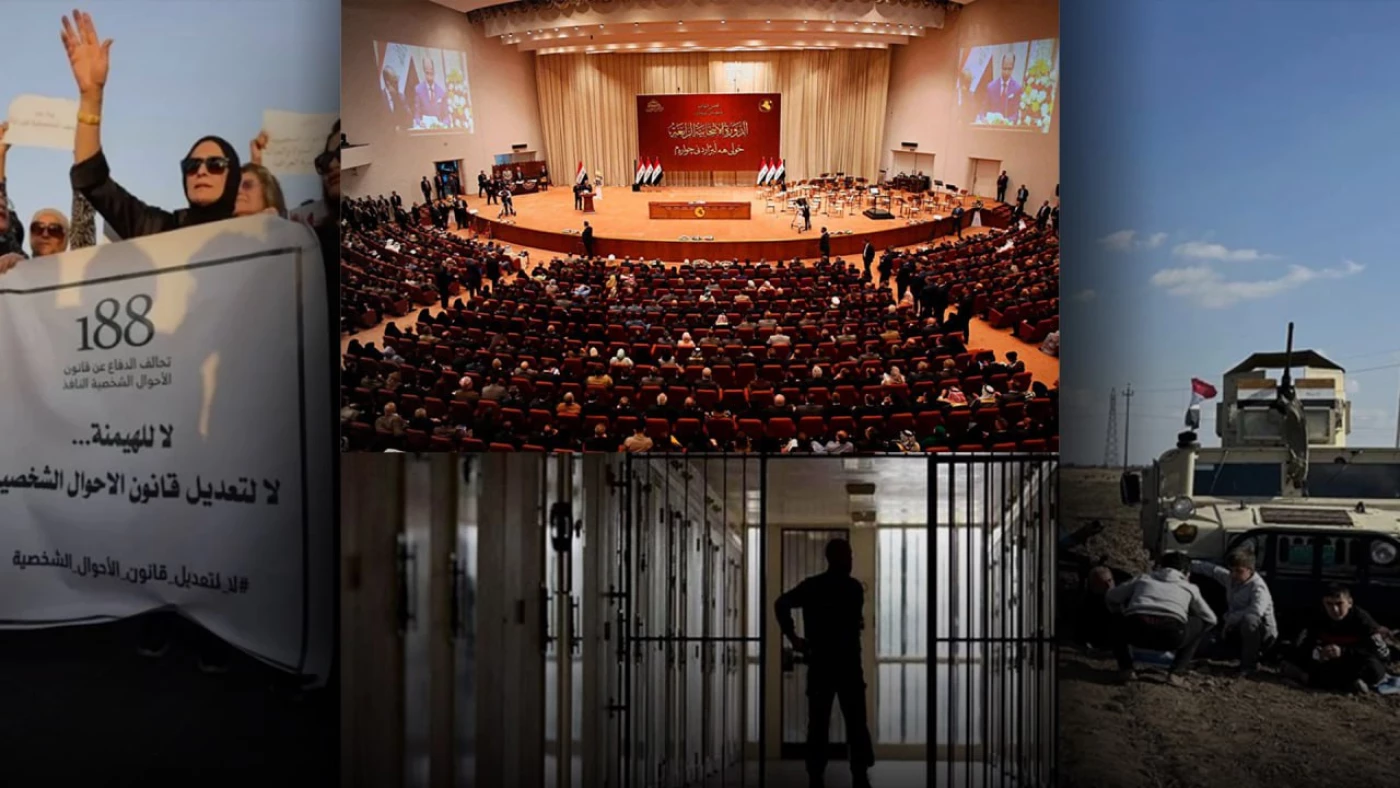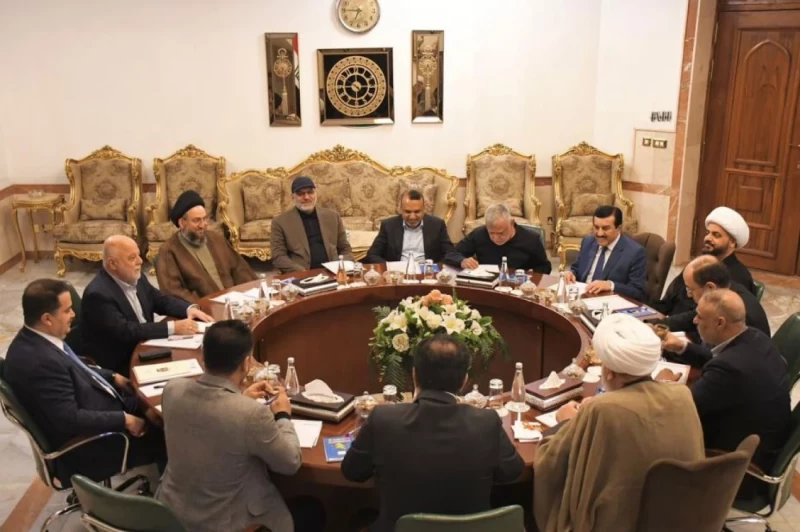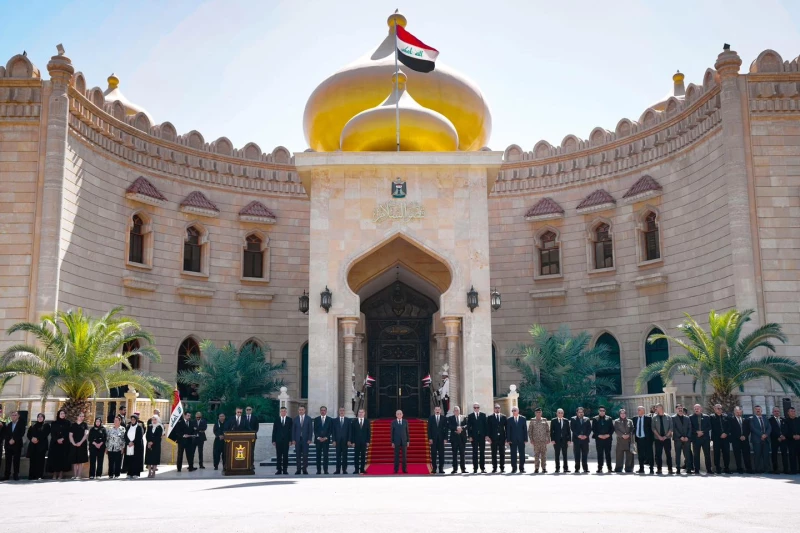Iraq stands at a pivotal moment in its legal and political evolution after three controversial laws were passed and as these laws take effect, their consequences will determine the country’s legal trajectory for generations.
Recent legislative changes have ignited heated and intense debates, touching on issues that strike at the heart of governance, human rights, and social justice. Two laws – the General Amnesty Law and the amendments to the Personal Status Laws – have raised concerns about the country’s direction. Are these changes genuine legal progress for Iraq, or do they risk undoing hard-fought protections? The newly enacted Property Restitution Law has become another contentious issue, particularly in the disputed region of Kirkuk, where tensions have flared over the rights of Kurdish farmers attempting to reclaim their lands.
One of the most controversial reforms shaping Iraq’s legal landscape is the General Amnesty Law, which allows thousands of prisoners - including some convicted of attacks on US troops and individuals who fought for Islamic State - to seek retrial if their confessions were obtained under duress. Iraq’s judicial system has long been plagued by allegations of coerced confessions and unfair trials, so in theory, this law is a step toward justice. However, in practice, it raises serious security concerns.
The last time Iraq enacted a similar amnesty law, it led to the release of individuals who later rejoined extremist groups, reigniting cycles of violence. Without rigorous judicial oversight, history could repeat itself. This raises pressing questions: Who exactly will be released? What safeguards are in place? Who will ensure that only those wrongfully convicted benefit from this legislation? Will the law result in the release of dangerous individuals? In a country still grappling with security challenges, it would be detrimental to inadvertently empower individuals involved in serious crimes, potentially destabilizing the country.
Striking the wrong balance between fairness in the justice system and compromising national security could lead to unintended consequences and this law could do more harm than good.
Parliamentarians have condemned the way in which the law was passed, bundled together with other reforms, undermining due process and transparency. A law of this magnitude requires strict scrutiny – not rushed approval.
If Iraq is to move forward, justice cannot come at the expense of security, nor can it be manipulated for political gain.
Decades of forced displacement and demographic engineering are now being legally challenged with the Property Restitution Law, a move aimed at rectifying historic injustices. This law seeks to reverse the forced land confiscations executed under Saddam Hussein’s Arabization campaign, particularly in Kirkuk and other disputed territories. Agricultural land is set to be returned to its rightful owners – predominately Kurdish and Turkmen farmers who were forcibly displaced.
This law is seen as a long-overdue step towards justice, however, its implementation is fraught with challenges that could either heal Iraq’s wounds or deepen ethnic and political divides.
The enforcement of the Property Restitution Law led to significant tension in Kirkuk last week. Clashes erupted between Kurdish farmers attempting to reclaim their land and Iraqi security forces, who blocked their access. The incident sparked protest and condemnation from Kurdish political leaders, who argue that without a commitment to fair enforcement, the Property Restitution Law risks becoming another unfulfilled promise.
Kurdish communities in Iraq have historically been subjected to forced displacement and demographic manipulation, and a failure to uphold the Property Restitution Law undermines reconciliation efforts and continues a legacy of marginalization.
If this law is to succeed, it must be enforced without bias or obstruction, ensuring that justice is not selective. The failure to properly implement this law will not only deny thousands their rightful land but will also escalate ethnic tensions, destabilizing an already fragile region. The Iraqi government must act decisively: either enforce the law as intended or risk fueling resentment that could explode into widespread unrest.
Amid the debates on justice and security, another legal challenge has curtailed Iraqi women’s rights. The amendments to the Personal Status Law grants religious authorities greater control over marriage, divorce, and custody, effectively stripping women of civil legal protections. This shift marks a dangerous regression, reinforcing patriarchal dominance in a country where women’s rights are already under threat.
One of the most pressing concerns is the impact on marriage laws.
While the law maintains the official minimum marriage age at 18, it permits exceptions allowing girls as young as 15 to marry with judicial approval. Critics warn that granting religious authorities increased power over family matters could lead to interpretations permitting marriages at even younger ages, possibly as low as nine years old, under certain sectarian rulings. This shift from civil to religious oversight makes enforcement unpredictable and dangerously subjective, threatening to undo decades of legal progress.
The Federal Supreme Court’s decision to uphold the amendment, despite initial objections, has only intensified fears that women’s rights are being sacrificed for political appeasement.
Women in Iraq have fought tirelessly for legal protections; this law threatens to undo that progress overnight. If Iraq is to be a country that upholds human rights, it must not allow laws that endanger the lives and futures of its women and girls. The amendments to the Personal Status Law makes it clear – the fight for women’s rights in Iraq is far from over.
Iraq’s Legal Crossroads: What’s Next?
These legislative changes reflect a broader struggle in Iraq - tradition versus modernity, religious authority versus human rights, security versus justice, and ethnic reconciliation versus political interests. The challenge is not just passing laws but ensuring they serve the people, not political or sectarian agendas.
Iraq faces a defining moment. Will it uphold the rights and protections of its people, or will it allow regressive laws to dictate its future? Will the Amnesty Law strengthen justice, or weaken security? Will the Property Restitution Law fulfill its purpose, or will implementation challenges render it ineffective? These are the critical questions Iraq faces. The world is watching, and history will judge the choices made today.
The General Amnesty Law risks turning a blind eye to past security failures. The Property Restitution Law, if not enforced fairly, will deepen ethnic grievances rather than resolve them. The amendments to the Personal Status Law represent an outright assault on women’s autonomy, a regression that no modern nation should accept.
One thing is certain: True legal reform should empower citizens, protect the vulnerable, and strengthen the rule of law – not roll back progress in favor of political convenience. Reform must serve all citizens – not just the powerful, not just the privileged, but the displaced, the marginalized, and the silenced. Only through an unwavering commitment to human rights, genuine accountability and fair governance can Iraq truly move forward.
The views expressed in this article are those of the writer and do not necessarily represent the position of The New Region's editorial team



 Facebook
Facebook
 LinkedIn
LinkedIn
 Telegram
Telegram
 X
X


